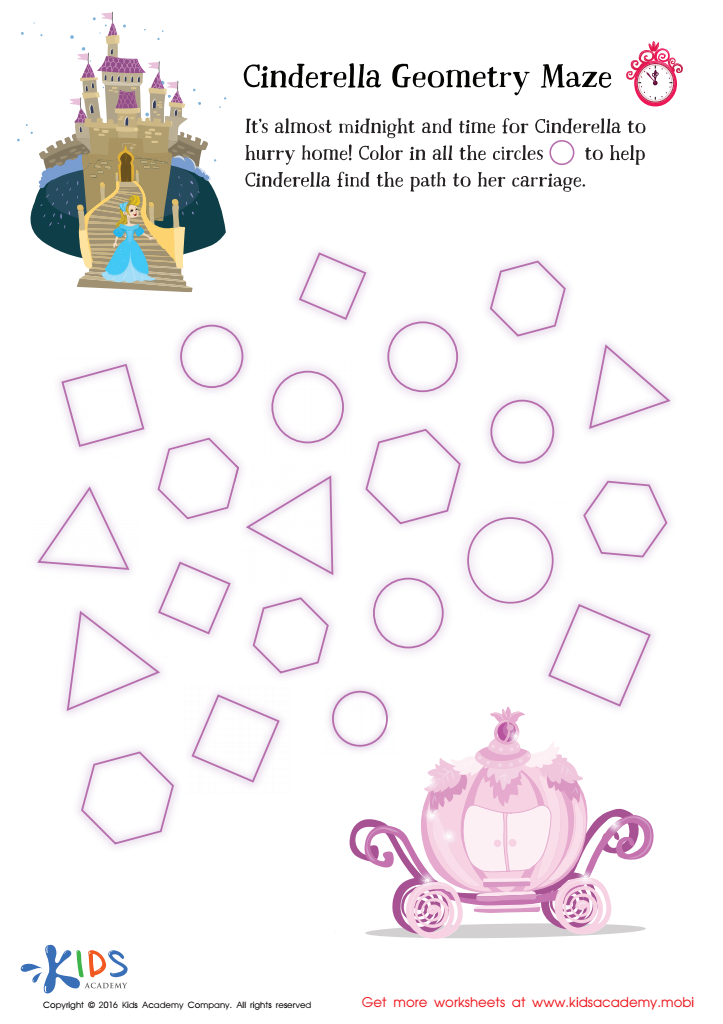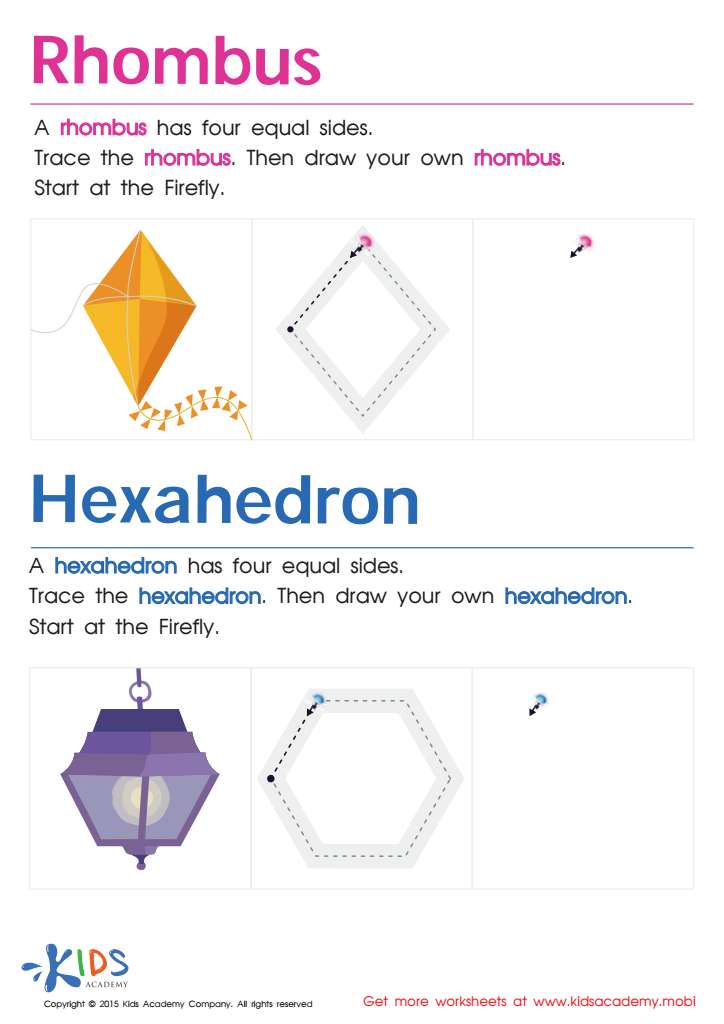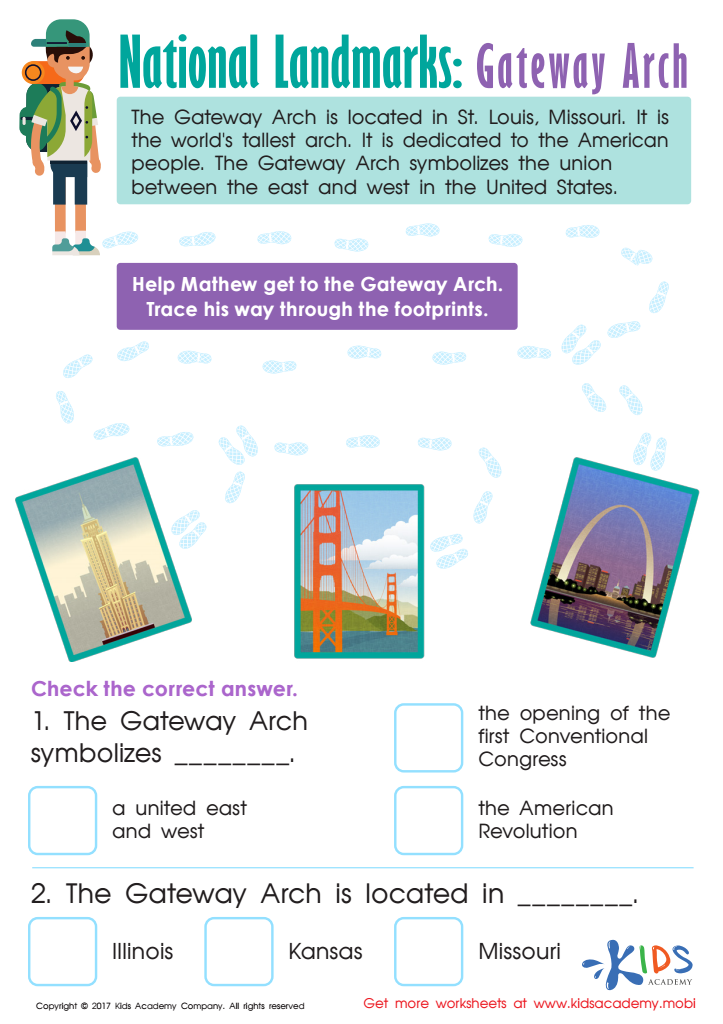Geometry understanding Normal Worksheets for Ages 6-8
3 filtered results
-
From - To
Explore our engaging geometry understanding worksheets designed specifically for children aged 6-8! Our printable activities make learning fun and interactive, helping young learners grasp essential geometry concepts such as shapes, patterns, symmetry, and spatial reasoning. Each worksheet is thoughtfully crafted to challenge and inspire, fostering critical thinking and problem-solving skills. Perfect for classroom use or at-home practice, our resources ensure children build a strong foundation in geometry through hands-on, visually appealing tasks. Enhance your child's mathematical journey today with our comprehensive and age-appropriate geometry worksheets!


Cinderella Geometry Maze Worksheet


Draw a Rhombus And a Hexahedron Printable


Gateway Arch Printable Worksheet
At ages 6-8, children are in a critical developmental window where foundational cognitive skills are being established, and geometry plays an essential role in this process. Understanding geometry is not just about recognizing shapes, but about developing spatial awareness, logical thinking, and problem-solving abilities.
Firstly, spatial awareness is a key aspect of cognitive development. As children learn to identify and manipulate shapes, they enhance their ability to understand the physical world around them. This is crucial for everyday tasks such as navigating spaces, assembling objects, and even handwriting.
Secondly, geometry nurtures logical thinking. By exploring properties of shapes and spatial relationships, children learn to categorize, compare, and reason systematically. These skills are fundamental not only in math but in science, technology, and engineering.
Thirdly, problem-solving skills are sharpened through geometric concepts. For instance, when children figure out how different shapes can be combined to form new ones or predict how objects will fit together, they practice critical thinking and persistence.
Finally, an early understanding of geometry sets the stage for future academic success. Topics like algebra and advanced mathematics often build on geometric principles. A strong foundation at an early age helps prevent struggles in later years.
In summary, fostering an understanding of geometry in children aged 6-8 supports their overall cognitive development, equips them with essential life skills, and lays the groundwork for future academic achievements.
 Assign to My Students
Assign to My Students














